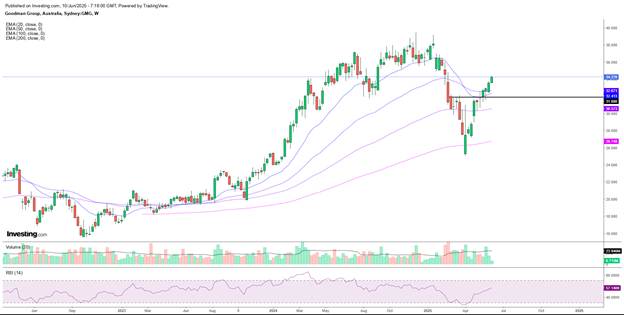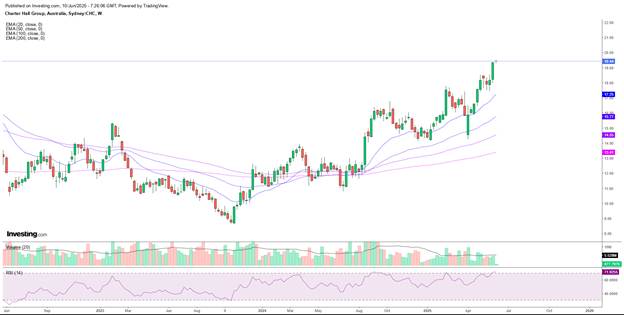Australia’s real estate landscape is influenced by a dynamic mix of economic conditions, demographic trends, and policy developments. According to the Australian Bureau of Statistics’ quarterly report for December 2024, the preliminary estimated total value of residential dwellings in Australia rose to $11,032.2 billion, representing an increase of $26.4 billion from $11,005.8 billion recorded in the September 2024 quarter. Additionally, the total number of residential dwellings increased by 53,200, reaching 11,294,300 dwellings during the same period.
Building approvals, Australia: According to the Australian Bureau of Statistics (ABS) Monthly Building Approvals Report for April 2025, total dwelling approvals declined by 5.7% to 14,633, following a 7.1% decrease in March 2025. In contrast, the value of non-residential building approvals increased by 14.7% to $7.91 billion in April, building on a significant 51.9% surge recorded in March. These figures highlight ongoing volatility in the construction sector, with divergent trends across residential and non-residential segments.
Key Growth Drivers for Real Estate: With rising urbanization, infrastructure reforms, and a growing middle class, the real estate market in Australia is undergoing a major transformation. Several key drivers are shaping its next phase of expansion and opportunity. Here are some key growth drivers for the real estate sector noted below:
- Population growth and migration: Australia’s ongoing population growth, continues to place upward pressure on housing demand—particularly in major urban centres such as Sydney, Melbourne, and Brisbane. This demographic expansion is expected to fuel increased demand for residential housing, rental accommodation, and first-home purchases, further intensifying competition in key metropolitan markets.
- Government support to boost real state sector: Initiatives introduced at both the federal and state government levels continue to stimulate housing demand, particularly among first-home buyers. These measures—often in the form of grants, concessions, and lending support—aim to improve housing affordability and encourage entry into the residential property market.
- Infrastructure development in states: Significant infrastructure investments—including major upgrades in transport networks, road systems, and urban planning—are playing a key role in driving land value appreciation across various regions. These developments are increasingly enhancing the appeal of outer suburban areas for both residential and commercial investment, as improved connectivity and amenities support long-term growth potential.
Here are a few ASX-listed companies currently standing out on the investors’ radar for their recent stock price movement and financial performance.
Goodman Group (ASX: GMG): Goodman Group (ASX: GMG) is a global property company specializing in industrial real estate and logistics assets. Headquartered in Sydney, the Group owns, develops, and manages high-quality warehouses and distribution centers across Australia, Asia, Europe, the United Kingdom, and the Americas. Goodman operates through a network of strategic partnerships and managed funds, with a focus on delivering long-term value to customers and stakeholders, while upholding responsible environmental and social practices.
As per the quarterly report ending March 31, 2025, the company reported a work in progress (WIP) pipeline valued at $13.7 billion, represents an annualised production rate of $6.2 billion. The total property portfolio increased to $85.8 billion, with Partnership assets under management (AUM) reaching $71.8 billion as of 31 March 2025. The group has also maintained its guidance for FY25 operating earnings per share (EPS) growth at 9%, reflecting continued confidence in its financial outlook.
From a financial performance perspective, the company reported a 25.2% increase in revenue, reaching $1,339.1 million for the first half of FY25, compared to $1,069.7 million in the first half of FY24. In addition to the strong revenue growth, the company achieved a profit after tax (PAT) of $799.8 million in 1HFY25, a significant turnaround from a loss of $220.1 million in 1HFY24. This improvement was primarily driven by the increase in sales and the positive share of the net result from equity investments.
As of 10 June 2025, the stock is trading at $34.270, with a market capitalization of $68.18 billion. It is currently positioned above all key moving averages (i.e., MA-20, 50,100 and 200), indicating underlying strength in the price trend. Additionally, the stock continues to trade above its key support level of $31.886. The Relative Strength Index (RSI-14 days) stood at 57.14, suggesting decent price momentum. Overall, the technical indicators point to a decent and stable price action trend.

Weekly chart (Source: Investing.com)
Charter Hall Group (ASX: CHC): Charter Hall Group (ASX: CHC) is a top-tier Australian real estate investment and fund management firm, known for its fully integrated platform and broad diversification across property sectors. The company invest and manage equity across Australia’s core real estate sectors, including Industrial & Logistics, Office, Retail, and Social Infrastructure. Its portfolio spans a wide range of assets—from iconic CBD office buildings and strategically located industrial facilities to community-focused shopping centres and early learning centres.
From the financial analysis front, the company registered an 8% decline in revenue, falling to $283.6 million in 1HFY25 from $308.2 million in 1FY24. Despite the drop in topline, the company managed to achieve PAT of $61.1 million as compared to $(190) million in the 1HFY24, driven by reduction in expenses. Debt-to-equity (D/E) ratio stood at 0.193x, indicating a relatively low level of leverage and current ratio came in at 2.33x as of 31 December 2024, reflecting decent liquidity to pay its short-term obligations.
Meanwhile, the stock is currently trading near at 52 weeks high of $19.51. It also trades above all key moving averages (i.e., MA-20, 50,100 and 200), and the Relative Strength Index (RSI-14 days) stood at ~71.9, indicating that the strong price momentum. Overall, the stock shows a demonstrated performance. As of 10 June 2025, the stock is trading at $19.44, with a market capitalization of ~$9.15 billion.

Weekly chart (Source: Investing.com)
Dexus (ASX: DXS): Dexus (ASX: DXS) is one of the Australia's leading real estate groups, managing a high-quality portfolio of Australian properties. Its infrastructure portfolio is valued at $53.4 billion as per the March 2025 Portfolio update release. Through its focus on real assets, Dexus aims to create and amplify opportunities that deliver long-term value for both investors and communities. The group is supported by a diverse investor base of over 38,000 investors across 24 countries. Backed by four decades of industry expertise, Dexus has established a strong track record in real estate investment and management.
As per the quarterly report ending March 31, 2025, rent collection remains strong, tracking at 100%, reflecting the resilience of the portfolio. Dexus has continued to deliver outperformance through the Dexus Wholesale Property Fund and the Dexus Wholesale Shopping Centre Fund. The company currently manages $38.9 billion in assets across its well-diversified fund management platform, highlighting the strength and scale of its investment capabilities.
From a financial analysis perspective, the company recorded a 14% increase in total income, reaching $560.2 million in the first half of FY25, up from $490.3 million in the first half of FY24. Additionally, the company achieved a profit after tax (PAT) of $10.2 million, marking a significant recovery from a loss of $597.2 million in 1HFY24. This improvement was primarily driven by a reduction in losses and a moderate increase in total income.
As of 10 June 2025, the stock is trading at $6.940, with market capitalization of $7.47 billion. It is currently trading below all key moving averages (i.e., MA-20, 50, 100, and 200), indicating downward pressure on price trends. The Relative Strength Index (RSI-14 days) stood at ~44, suggesting neutral price momentum. Overall, the technical indicators reflect a bearish outlook for the stock.

Weekly chart (Source: Investing.com)
National Storage REIT (ASX: NSR): National Storage REIT (ASX: NSR) is a leading self-storage provider in Australia and New Zealand, serving over 97,000 residential and commercial customers across 250 storage centres. The company operates within a single business segment—the ownership and management of storage facilities. Its services include self-storage, business storage, climate-controlled wine storage, vehicle storage, trailer hire, packaging supplies, and insurance. Its investment portfolio includes freehold and leasehold properties, as well as sites under development.
From a financial performance standpoint, the company reported total revenue of $190.5 million in 1HFY25, representing a modest rise of 10% compared to the 1HFY24. Net profit increased by 11%, rise to $87.9 million in 1H FY25 from $79.2 million in 1H FY24. This increase was primarily driven by increased in rental income. As of 31 December 2024, company’s current ratio stood at 0.19x, indicating a week liquidity position to meet short-term obligations.
Meanwhile, the stock has currently positioned above of key moving averages (i.e., MA-20, 50, 100 and 200). However, it continues to trade above its recent key support level of $2.278. The Relative Strength Index (RSI-14 days) stood at ~55.2, indicating going to bullish momentum. Overall, technical indicators suggest a bullish price action trend. As of 10 June 2025, the stock is trading at $2.340, with a market capitalization of $3.22 billion.

Weekly chart (Source: Investing.com)
Growthpoint Properties Australia (ASX: GOZ): Growthpoint Properties Australia Limited (ASX: GOZ) is a real estate investment trust (REIT) that invests in industrial and office properties across Australia. It operates through three segments: Industrial, Office, and Funds Management. Growthpoint actively manages and invests in its portfolio while also expanding through its funds management platform, which oversees investments in office, retail, mixed-use properties, and debt strategies on behalf of third-party investors.
As per the quarterly report ending March 31, 2025, the company is focused on expanding its partnership with Growthpoint Australia in the logistics sector, marked by the exchange of contracts for the acquisition of assets valued at $40 million in Stapylton, Queensland. Furthermore, the company has reaffirmed its distribution guidance for the financial year ending FY25 at 20.3 cents per security (cps), reflecting continued confidence in its operational performance and earnings outlook.
From a financial perspective, the company delivered a broadly neutral performance in the first half of FY25, with a modest 1.6% increase in total revenue and other income to $168 million, up from $165.3 million in the first half of FY24. Despite only a slight improvement in revenue, the company achieved a significant ~18.02% reduction in its net loss, reporting a loss of $(98.7) million in 1HFY25 compared to loss of $(120.4) million in 1HFY24.
Meanwhile, the stock has currently positioned above of key moving averages (i.e., MA-20 and 50) but remains below the MA- 100 and 200. However, it continues to trade above its recent key support level of $2.38. The Relative Strength Index (RSI-14 days) stood at ~59, pointing to building bullish momentum, though not yet signalling an overbought condition. Overall, technical indicators suggest neutral price trend. As of 10 June 2025, the stock is trading at $2.50, with a market capitalization of $1.87 billion.

Weekly chart (Source: Investing.com)
Conclusion: Australia’s real estate sector remains underpinned by key growth drivers such as government support, strong population growth, and ongoing infrastructure development. The steady rise in the total value of residential dwellings reflects ongoing confidence in the market, particularly in high-growth urban centres. However, the recent decline in dwelling approvals highlights emerging challenges in the housing supply pipeline, which could impact affordability and project delivery timelines. Investors may find opportunities in select property-related stocks; however, it is essential to remain cautious of risks including housing affordability pressures and potential changes in government policy.

